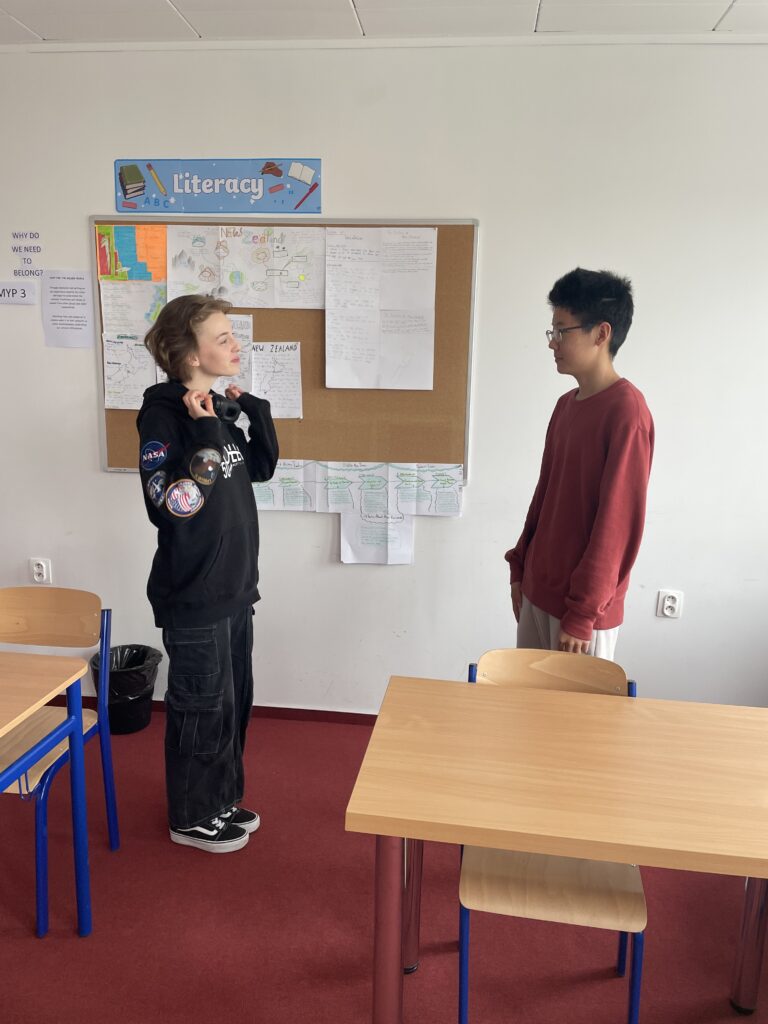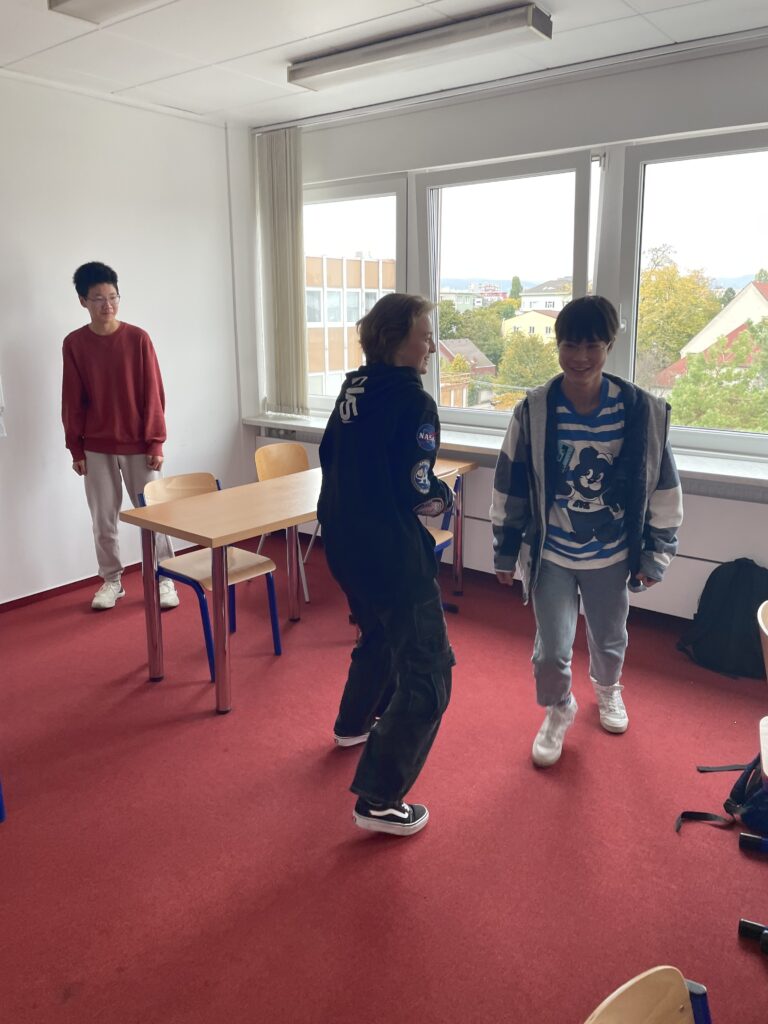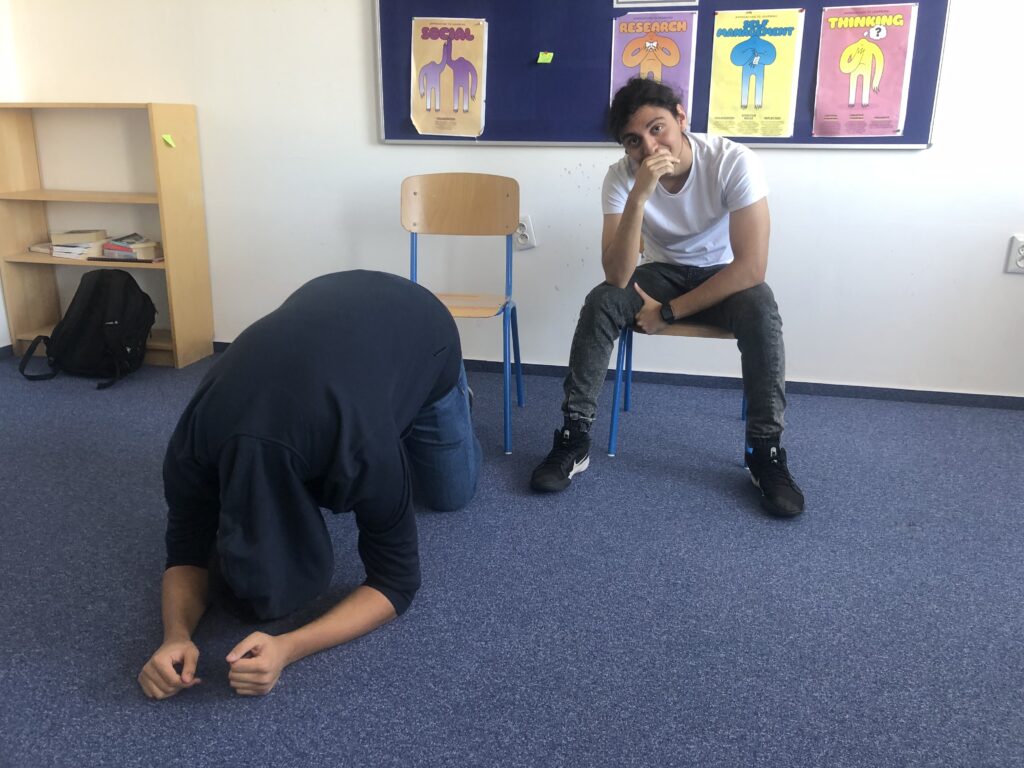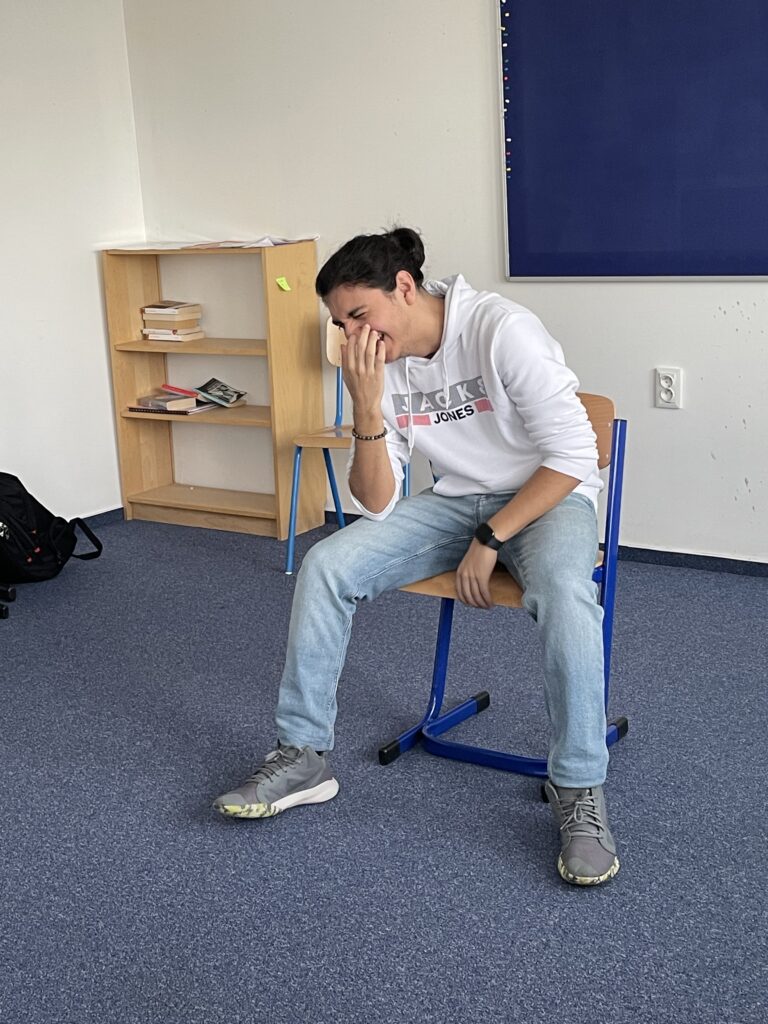The Crucial Role of Theatre Classes in Developing Acting, Reacting, and Listening Skills
The magical world of theater …. well, is not merely about delivering lines or hitting marks on a stage; it’s a dynamic art form that demands a wide range of skills. Students have the opportunity to develop essential abilities and skills that extend far beyond the stage.

In the past five weeks, we have delved into the following key areas:
Basics of Acting: Theatre classes provide a fertile ground for budding actors to refine their craft. Students learn to inhabit characters, express emotions, and convey stories through their bodies and voices. They practice the art of analyzing scripts, interpreting roles, and delivering lines convincingly. These skills empower students not only to excel in the world of performance but also to build self-confidence and effective communication abilities, which are applicable in a variety of real-life situations. Acting classes emphasize the importance of empathy and emotional intelligence, fostering a deep understanding of human nature.
Basics of Reacting: Theater is, at its core, a medium that captures the essence of human interaction. In theater classes, students learn how to react genuinely to their fellow actors. They practice the subtleties of the give-and-take of conversation, body language, and the timing of responses. This teaching helps them be fully present in the moment, adapt to unexpected situations, and embrace spontaneity. These skills are not only vital on the stage but also in day-to-day life, enabling individuals to engage effectively in social interactions, negotiations, and problem-solving.

Importance of Listening to Others: Listening is not a passive skill; it’s an active one. Students are taught to listen with intent, not just to words but to emotions, subtext, and nuances. This heightened level of active listening enhances their ability to understand and connect with others. It also fosters a profound respect for diverse perspectives and encourages open-mindedness. These skills are crucial for building strong relationships, both personally and professionally.

Let’s take a moment to hear from the students about their recent experiences with these classes:
“In the last five weeks of Drama class we have learned many things such as hand gestures, action and reaction, face expressions, and many details about acting. Personally I have enjoyed the class sessions because first of all it is a fun and entertaining course and also I like struggling with the things that I cant do. My favorite aspects of the class were the things that it taught me that I had previously been unable to perform, such as talking without making hand gestures.” (Aria K.)
“I’ve learned the finer details of not only delivering lines but also developing my ability to respond authentically to the wide range of reactions from people around me. This thorough investigation goes beyond simple conversation and includes the deep language of nonverbal signals such as perceptive hand movements and the many types of expressions that exist on the human face. The dynamic focus of our attention is what makes this learning experience very enjoyable for me. Instead of focusing completely and boringly on one area, we work with a wide range of abilities and methods. Each session exposes a new aspect of this journey, introducing me to the skill of living in different characters, managing the complexities of relationships, and perfecting the art of real and interesting answers.” (Morteza F.)

However, it’s important to mention that theater classes are not exclusively for aspiring actors; they possess a universal appeal and offer a wealth of benefits to all students. These classes foster creativity, self-expression, and a sense of community as students collaborate to bring stories to life. They nurture critical life skills that extend beyond the stage, promoting confidence, adaptability, and empathetic communication.

Theatre classes require hard work, a lot of self-reflection, and dedication to personal growth. Self-confidence, the ability to listen, and effective communication do not develop overnight, but the feeling of witnessing one’s personal growth is irreplaceable.

…and don’t forget; practice makes perfect. 🙂
Miss Zuzana




